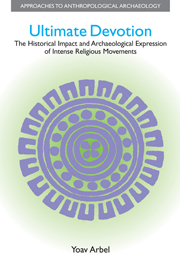 Ultimate Devotion
Ultimate Devotion from Part II
Yet, O Lord God of Truth, is any man pleasing to thee because he knows these things? No, for surely that man is unhappy who knows these things and does not know thee. And that man is happy, who knows thee even though he does not know these things. He who knows both thee and these things is not the more blessed for his learning, for thou only art his blessing.
St Augustine, Confessions 5.IV.7The “things” the highly-educated St Augustine refers to are the non-theological fields of knowledge he had studied for years, but which seemed of no use to him after his conversion to Christianity. The knowledge of divinity was now sufficient, and Augustine fully endorsed his mentor St. Ambrose's ironclad rule: “the letter kills but the spirit gives life.” This is the sum of religious intensity: a complete and total switch of both mind and action to a single spiritual direction — the ultimate, unrelenting devotion.
Religious intensity takes to extreme a concept that from a practical perspective is useless and often detrimental to basic human needs, even in its moderate and less compromising forms. Worship and prayer demand time that could be invested in production, rest, or recreation. Sacrifices and alms extract funds with no material compensation to the provider. Taboos eliminate dietary, sexual, and behavioral options. Yet, religious people would see it differently.
To save this book to your Kindle, first ensure [email protected] is added to your Approved Personal Document E-mail List under your Personal Document Settings on the Manage Your Content and Devices page of your Amazon account. Then enter the ‘name’ part of your Kindle email address below. Find out more about saving to your Kindle.
Note you can select to save to either the @free.kindle.com or @kindle.com variations. ‘@free.kindle.com’ emails are free but can only be saved to your device when it is connected to wi-fi. ‘@kindle.com’ emails can be delivered even when you are not connected to wi-fi, but note that service fees apply.
Find out more about the Kindle Personal Document Service.
To save content items to your account, please confirm that you agree to abide by our usage policies. If this is the first time you use this feature, you will be asked to authorise Cambridge Core to connect with your account. Find out more about saving content to Dropbox.
To save content items to your account, please confirm that you agree to abide by our usage policies. If this is the first time you use this feature, you will be asked to authorise Cambridge Core to connect with your account. Find out more about saving content to Google Drive.